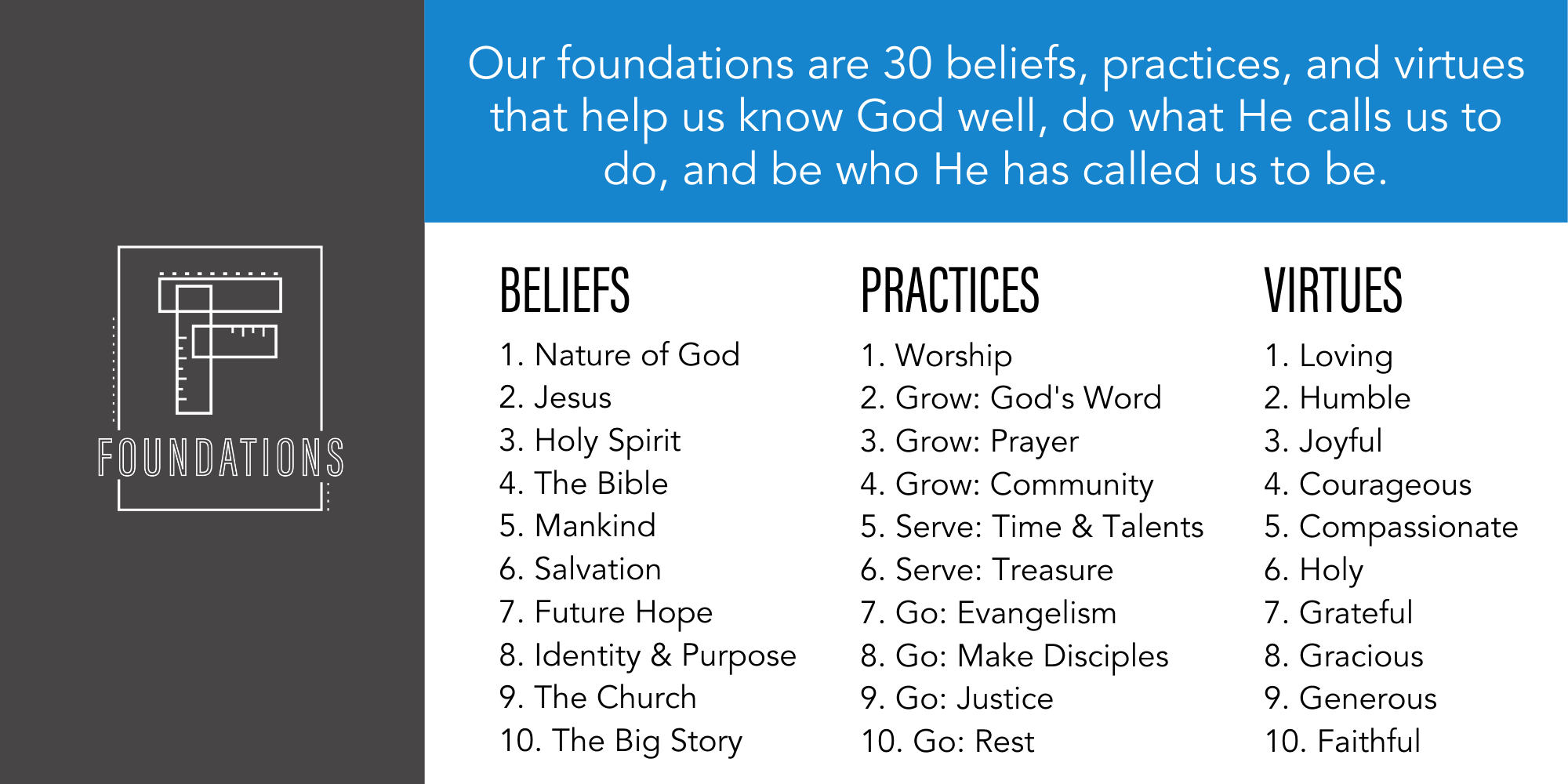Foundations Blog
We’re in a new series called “Foundations” which builds off of Jesus’ metaphor in Matt 7: “A house built on sand will never be able to stand BUT a house that’s built on the rock will never be able to fall.”

Practice #4 COMMUNITY - Discussion Guide for Groups
Practice #4: Grow in Biblical Community
The West is the land of the individual. From rusted the harbors of Ellis Island to the silicon jungles of San Fransisco, we love stories of individuals — brave, undaunted men and women who through hard work, ingenuity, and big dreams create a brighter future for themselves and their children. However, the Bible paints a very different picture of what it means to follow Christ; The redemptive language of the New Testament is more “we” focused than “me” focused. In our cultural context, this might be the most radically counter-cultural distinctive in the life of the believer — the necessity of community in our spiritual journey.
For Group Leaders
- Begin in prayer. Welcome the Holy Spirit to the group and invite Him to lead, guide, and convict your group as you meet together.
- Reflect on the sermon this morning as a group. What were some highlights? Was anything particularly helpful, convicting, or confusing?
- Consider the following questions and pick a few to focus your discussion.
Examine the Word
- Re-read Acts 2:44-47
For Discussion
- Why do you think God calls the Christian life to be lived in community?
- What do you think the ideal Christian community looks like? Have you ever experienced anything like this in your discipleship journey?
- Think of a time in your life when you have been isolated from Christian community. What was this time like? Were there any ramifications to your personal spiritual life during this time?
- When we look at the New Testament church (Acts 2:44-47), what similarities and dissimilarities do we see with the church in North Dallas? To what degree are we supposed to expect the same type of community that we see in the early church?
Practice
- Intentional vulnerability: Vulnerability is the core of intimacy. This week, choose a person from your Christian sphere of interaction with whom your relationship might be described as superficial. Over a meal or a cup of coffee intentionally share your story with this believer. Be careful not to avoid the difficult parts, hurts, or embarrassments when sharing your story.
- Confession: Find a trusted friend to confess sin with. James 5:6 says that confessing to a community of believers is an essential component of healthy Christian walk. Set aside a time to humbly confess your struggles and failures to one another.
- Encouragement: Practice a time of intentional encouragement. Write down three specific things you love or admire about a member of your community. Send a card, make a phone call, or have an in-person conversation with your brother or sister and encourage them with those three things (NOTE: be specific. Generalities and platitudes are rarely encouraging — dig deep to discern how God has gifted your brother or sister).
For Family Discussions
- Take some time to talk about the sermon together. What did you learn that was new? Were there any parts that were confusing?
- Why do you think it’s important to have Christian friends? Do you think there’s anything wrong with having non-Christian friends?
- Why do you think God wants us to come to church? What does this tell us about what kind of life God desires us to live?
- Talk about confession. Why does God want us to confess our sins to each other?
Published on 10-10-2021 @ 4:21 AM CDT
